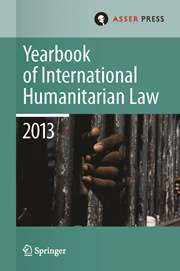Article contents
SOVIET GENOCIDE TRIALS IN THE BALTIC STATES: THE RELEVANCE OF INTERNATIONAL LAW
Published online by Cambridge University Press: 31 January 2007
Abstract
After regaining independence following the 1991 collapse of the Soviet Union, Lithuania, Latvia and Estonia vowed to prosecute those who took part in the Soviet repressions that followed the annexation of these countries in 1940. Over a dozen ex-agents have since been tried. Officials in the Baltic States insist they are seeking long overdue justice and shedding light on some of the worst human rights abuses of the 20th century. This paper is principally concerned with genocide as a legal norm. It examines whether the indictments of the courts of the three Baltic republics for the crime of genocide, as it is described in their national statutes, correspond with the definition provided by international law. The paper avoids qualifying the Soviet occupation regime; instead, the emphasis is on the progress made by legislators of the Baltic countries in defining the crime of genocide and the application of those definitions by national courts.
- Type
- Current Developments
- Information
- Copyright
- © 2004 T. M. C. Asser Instituut, The Hague, The Netherlands
- 4
- Cited by


